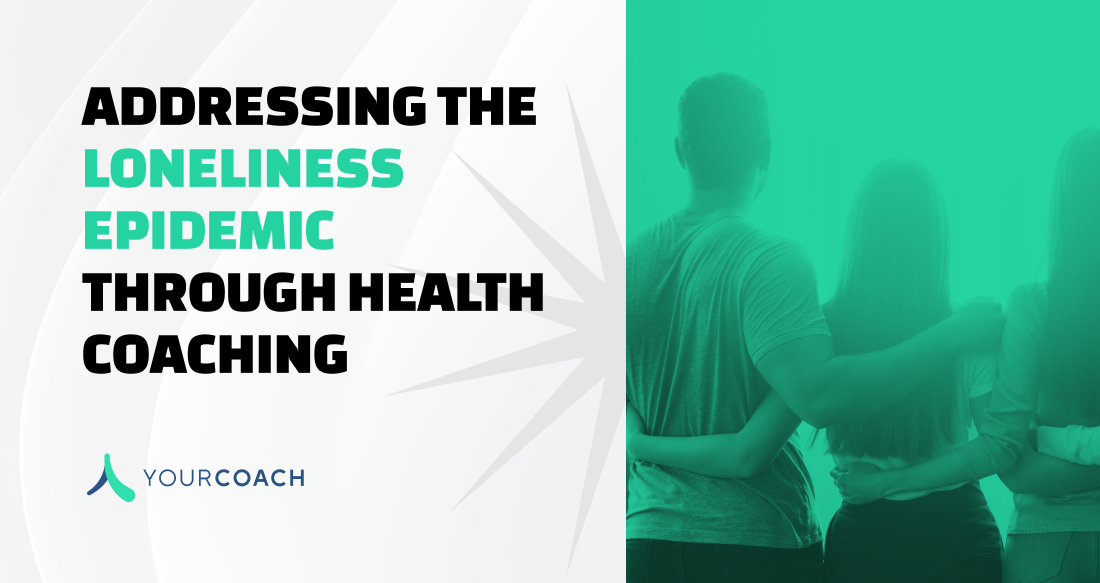
In 2023 the U.S. Surgeon General put out his Advisory on Our Epidemic of Loneliness and Isolation, which he called an, “underappreciated public health crisis that has harmed individual and societal health.” Indeed this public health crisis has gained massive attention in the past three years, driven to new heights in the aftermath of COVID-19 due to changes in the ways we work and interact, increased reliance on technology and so much more.
What does this loneliness epidemic look like by the numbers? According to a recent Meta-Gallup survey, nearly one in four people worldwide reported feeling very or fairly lonely. We’re also seeing some generational trends. Some data suggests Gen Z (38%) and millennials (37%) feel the most lonely compared to Gen X (31%) and boomers (19%) – potentially driven by disparities in screen time and reliance on technology. Other stats show loneliness peaking in older adults, influenced massively by their proximity to loved ones and sense of community. Outside of age, demographic and environmental factors such as sexual orientation, immigration status, socioeconomic status, and religion can all have implications on the frequency and ways we experience loneliness.
Why does loneliness matter? According to data compiled by the CDC, social isolation and loneliness have been associated with increased risks of dementia, heart disease, stroke, depression, anxiety, suicide and more. Studies have even shown loneliness can have a detrimental effect on our performance at work, with some reports showing lonely employees are 4.5 times more likely to struggle with productivity.
Health coaches can be game-changing for individuals struggling with loneliness in their work and personal lives. They provide critical, holistic health support, encouraging better social health on their pursuit towards more optimal physical, emotional and mental wellbeing. Today, we’re sharing just a few of our favorite ways health coaches mitigate loneliness among their clients, facilitating better, long-term health outcomes.
Recognize when loneliness has become an issue.
The problem with loneliness is that it’s an entirely silent epidemic. It’s not loud or glaring. It doesn’t keep us up at night coughing. It’s a silent, creeping feeling that builds up over time and catches up with us the more we try to disengage or distract ourselves with whatever is available to us. Loneliness can look like spending most of our time at home because we don’t have access to transportation or the physical or financial means to leave our home. Loneliness can look like deprioritizing time spent with others in favor of work.
Health coaches help us see ourselves in ways we might have become desensitized to over time. They hold us accountable for our reality and help us recognize the things in our lives that are getting in the way of our social wellbeing. Health coaches recognize when loneliness has become an issue so that they can help make it a priority for us to change course from a direction that’s no longer serving us. They work closely with us to make small life changes—meeting us wherever we are—so that we can feel socially fulfilled and connected to others in a meaningful way.
Encourage social hygiene.
Not only can health coaches recognize when we need more social balance, but they can also help us assess opportunities to get more of what we need. For example, not everyone has a local support system available to them. Health coaches can provide ideas for other opportunities where we can create community—like finding a group fitness class you’re excited about, joining a book club at your local library, or even engaging in an online community around a common interest. What’s more, health coaches can provide practical tools to help you engage in more effective communication, nurturing and growing new or existing social relationships. They can teach us to listen more actively, prioritize others where appropriate, and make time for mindful connection.
Serve as a regular support system.
Consider your health coach to be your first line of defense against loneliness. Regular sessions with a real health coach— over video, phone or via ongoing chat—provide an ongoing means of support, encouragement and accountability, which are all core to positive social relationships. Just having someone to talk to can be an incredibly meaningful addition to your health and wellbeing. However, having someone to talk to who can provide insightful, science-backed strategies based on your needs and that reduce loneliness and help you make more out of your social relationships is core to becoming a healthier, happier and more productive version of YOU!
We’ve seen the impact of real health coaching on addressing loneliness head-on through our Industry Partnerships, If you’re a company looking to learn more about how we partner with organizations to deliver non-clinical supplemental mental health support through health coaching, contact us at team@yourcoach.health


